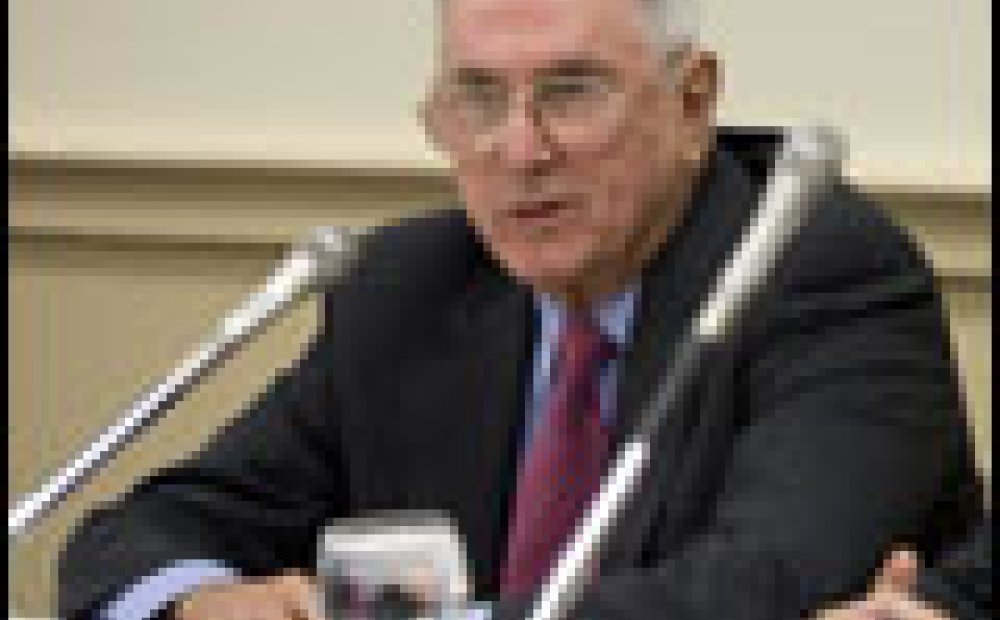Can Journalism Survive: The New Media World

On September 22, Wilson Center on the Hill and the United States Studies Program hosted a seminar on the current status of newspapers. Martin Tolchin, a Senior Scholar at the Wilson Center, moderated the discussion, Albert Eisele, an editor-at-large and former editor of The Hill, and Gabor Steingart, Washington bureau chief of the German weekly newsmagazine Der Spiegel.
The panelists were asked to address the following questions: Does the decline of newspapers mean the end of journalism as we knew it, or does it open the way for "digital democracy"—citizen newshounds producing multiple perspectives? Where will journalism be in ten years? Will print newspapers still exist, or will internet outlets have taken over? What do the new media mean for old standards of reporting? And how can the new media survive financially?Martin Tolchin opened the discussion by citing a prediction made by Arthur Sulzberger Jr., the publisher of the New York Times, that within five years his newspaper would cease to exist in print form. Sulzberger made that prediction five years ago, and while it proved wrong, Tolchin said, it is evident that newspapers are currently in dire financial straits. The industry lost 16,000 jobs last year, and some newspapers, such as the Boston Globe, have been forced to close their foreign bureaus. The sharply rising cover price of newspapers has accelerated the loss of readership. At the same time, blogs are becoming increasingly popular. These, Tolchin contended, need not be seen as a threat to journalism. Instead, they hearken back to the more open, pre-corporate days of journalism.
Albert Eisele asserted that journalism can survive, but not in its current form. Under the new rules of online media, he said, stories are haphazardly picked up by bloggers, and investigative journalism gets lost in partisan sniping. The great danger, accordingly to Eisele, is that society will lose the benefit of the free press's watchdog function. He cited former Supreme Court Justine Hugo Black, who said that "the government's power to censor the press was abolished so that the press would remain forever free to censure the government...." With local newspapers quickly disappearing, no new presence appears capable of holding government accountable.
Gabor Steingart argued that newspapers have contributed their own decline in three ways: by abandoning journalism's unique sense of mission for a more assembly-line approach; deciding to give content away for free on the internet but failing to come up with an alternative source of income; and actually feeding their online competition. Journalists' need to produce both online and print content raises questions about when and how to break stories and generates a rivalry between newspapers' online and print products. Meanwhile Google and mobile device manufacturers such as Apple or Nokia benefit from providing their customers with free content.
To address the newspapers' decline, Steingart proposed a three-part solution. First, newspapers must recognize that this is a problem of revenue, not audience. Many papers have more readers than ever before through their online outlets. Rather than shrink from them, Steingart encouraged newspapers to embrace them and explore more profitable business models. Second, newspapers must "crash the parties" of other players who have been profiting from new technologies by negotiating revenue-sharing between content producers and distributors, including manufacturers of hardware such as mobile devices. Finally, newspapers must discuss the problem openly with their readers, making it clear that the practice of giving away news for free is unsustainable. Better communication, he says, can help re-establish the "coalition" between readers and publishers.
Drafted by Richard Iserman
Edited by Sonya Michel